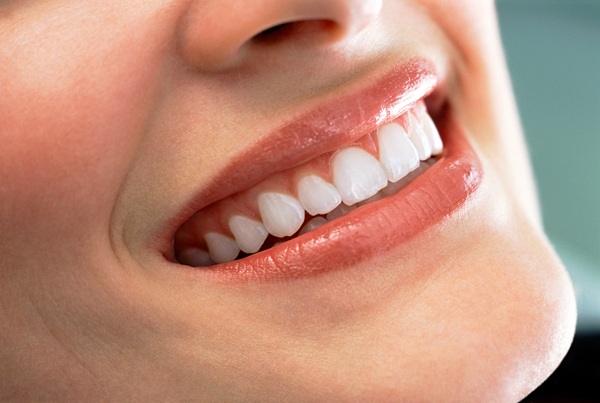A dental crown is a popular solution to restore the appearance and function of your damaged or decayed tooth. It is generally a non-invasive procedure, allowing you to eat and chew comfortably again. However, at times, it can develop complications.
Today, we’ll look into eight of the most common dental crown problems and the available treatment options for each, so you can be better equipped to recognise when something is amiss with your dental crown and seek appropriate care to restore your oral health without any delays.
The Most Common Dental Crown Problems and How to Fix Them
Dental crown problems can range from minor issues like sensitivity or discomfort to more serious concerns, such as chipping or fracturing of the crown. Therefore, if you have a dental crown, it is necessary to be aware of the potential complications that can arise, along with their possible causes and treatment options.
1. Tooth Decay
Even with a dental crown, your natural tooth underneath is still susceptible to decay. Poor oral hygiene habits, like not brushing or flossing regularly, can lead to the buildup of plaque near the area where the tooth and the crown meet, causing tooth decay around the crown. As a result, the crown may loosen or even fall out.
Treatment:
To treat this problem, your dentist might recommend a dental filling if the decay is accessible. In more severe cases, when the decay is underneath the crown, the dentist might have to remove the existing crown, treat the decay and place a new crown in place of the existing one..
2. Poor Crown Placement
Sometimes, when a dental crown is poorly placed, it can lead to a range of issues. If the crown is too high, for instance, it can cause pain when biting or chewing. If it is too low, it can cause discomfort or even infections.
Treatment:
To address these issues, the crown may need to be readjusted or replaced. Your dentist may need to remove the existing crown and take a new impression to create a crown that fits accurately. In some cases, a root canal treatment may be necessary to address any underlying decay issues with the tooth. Your dentist will evaluate the extent of the problem and recommend the most appropriate treatment to restore the functionality and comfort of your dental crown.
3. Implant Failure
Crowns are not only placed on damaged or decayed teeth, but they are also an integral part of the tooth implant procedure. Being a popular solution to replace missing teeth, dental implants often require a crown to cap the implant post. However, implant failure can occur due to various factors, such as poor oral hygiene, trauma, or infection. If the implant fails, it can also lead to the failure of the dental crown placed on top of it.
Treatment:
Early detection and treatment can help prevent implant failure and may also save the crown from replacement. As such, the dentist may prescribe antibiotics to prevent infection and ensure the success of the implant. Despite all the care, if the implant still fails, the dental crown may need to be completely removed, and the implant will need to be replaced to prevent further health complications.
4. Damaged Crowns
Dental crowns can become damaged due to wear and tear over time, or from biting down on hard objects. It can cause the crown to crack or even break off entirely.
Treatment:
The treatment options will depend on the extent of the damage. For minor cracks or chips, the dentist may be able to repair the crown by filling in the damaged area with composite resin material. As a quick and easy fix, it does not require the removal of the crown.
However, if the damage to the crown is more extensive, such as a large fracture or break, the crown may need to be completely removed and replaced with a new one.
5. Sensitive Teeth
Tooth sensitivity after getting a dental crown is usually caused by an ill-fitting crown, which can leave a gap between the crown and your natural tooth. As a result, the underlying dentin layer is exposed which contains nerve endings that can become sensitive to temperature changes or pressure. It happens because, during the crown fitting procedure, tooth enamel is trimmed to make room for the crown, often leading to the exposure of the dentin and its nerve endings.
Treatment:
If you experience sensitivity after getting a dental crown, make sure to let your dentist know. They may recommend desensitising toothpaste or fluoride treatment to help alleviate the discomfort. If required, the dentist may seal the exposed dentin to provide relief from sensitivity. If the sensitivity persists or becomes more severe, the dentist may need to replace the crown with a new one or adjust the fit of the existing crown.
6. Mismatched Colours with Your Natural Teeth
While the crown is typically made to look and feel like a real tooth, sometimes there can be a mismatch between the crown and your natural teeth. It can occur due to improper colour matching or changes in the colour of your natural teeth over time.
A mismatched crown can look bad because it stands out as being different from the rest of your teeth and can be particularly noticeable if the crown is located in the front of your mouth.
Treatment:
One possible treatment for a mismatched dental crown is to replace it with a new one that matches the colour and shape of your natural teeth more closely. The dentist can take a mould of your teeth to ensure a proper fit and colour match. Another option is to have the crown adjusted by a cosmetic dentist to match the colour of your surrounding teeth. The best treatment option will depend on your specific case and preferences.
7. Bite Problem
When your dental crown is not aligned properly, it can affect the way your teeth fit together and cause problems with your bite, leading to pain or discomfort when chewing and in some cases, even causing jaw problems.
Treatment:
The first step in addressing an improperly aligned crown is to have it evaluated by your dentist. They may be able to make minor adjustments to the crown, such as grinding it down in certain areas to improve the fit and relieve any discomfort. If the misalignment is severe or the crown is causing significant issues with your bite or jaw function, it may need to be replaced entirely.
8. Allergic Reaction
Although rare, some people can experience allergic reactions to the materials used in the crown, especially the metal. They may experience symptoms such as gum irritation or swelling around the crown.
Treatment:
If you experience an allergic reaction to your dental crown, your dentist may suggest replacing it with a crown made from a different material. One possible option is a porcelain or ceramic crown, often preferred due to its natural look and biocompatibility. Another option is a zirconia crown, a type of ceramic crown that is highly durable and resistant to chipping or cracking. Your dentist can help you determine the best material for your needs and ensure that your new crown fits properly for optimal comfort and function.
Are You Facing Dental Crown Problems?
If you have a dental crown and the discomfort just won’t go away, it is recommended to schedule an appointment with your dentist as soon as possible. Ignoring the problem can lead to more serious dental issues down the line. With the correct diagnosis and treatment plan, your dentist can help you resolve any issues with your dental crown and get you back to feeling comfortable with your smile.
At Bellevue Hill Dental, our compassionate dental practitioners can help you get relief from your dental crown issues, from sensitivity and ill-fitting crowns to more serious complications like allergic reactions. With our state-of-the-art technology and personalised treatment options, we can get you back to enjoying a healthy, beautiful smile in no time.Don’t let dental crown problems hold you back – contact us today to get the care you need.



